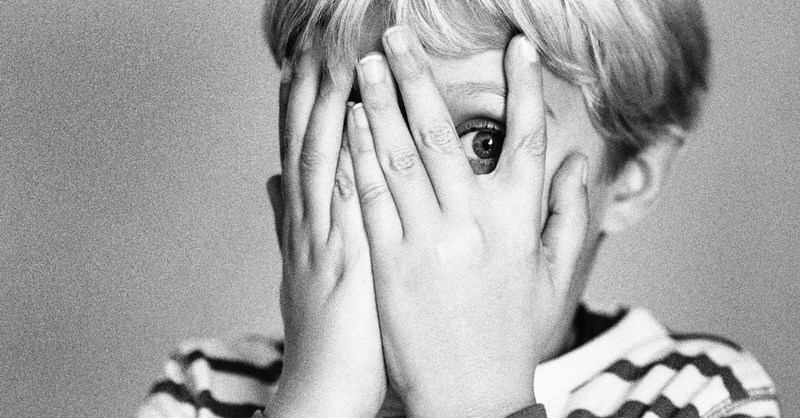Characteristics Of People With Low Self Esteem - The level of self-esteem is variable throughout life; that is, the level of self-confidence and the value we attribute to ourselves is not defined in the metaphor of a straight line. Self-esteem is one of the essential ingredients of our personal development and emotional well-being. For this reason, it is crucial to listen to those symptoms that indicate that we do not love each other as much as we deserve.
Through self-esteem, you become aware of the critical relationship you maintain with yourself since this relationship is the pillar of your bond with others, for this reason, in this article we are going to discover what are the characteristics of people with low self-esteem so that you learn to recognize them and analyze yourself.

Main characteristics of people with low self-esteem.
The low self-esteem can facilitate the appearance of many disorders and psychological problems, for that same reason, here we are going to discover a list with the characteristics of people with low self-esteem. The most common symptoms of low self-esteem are:
- They are indecisive, have difficulty making decisions, have an exaggerated fear of making mistakes. They only make a decision when they are utterly sure of obtaining 100% results.
- They think that they can't, that they don't know anything, that they won't get it.
- They don't value themselves, their talents, or their possibilities. They see their small skills, while those of others see them as large and even exaggerated.
- They are afraid of what is new and avoid risks.
- They are very anxious and nervous, which leads them to avoid situations that give them anguish and fear.
- They are very passive; they avoid taking the initiative.
- They are isolated, shy, and have almost no friends or very few.
- They do not like to share their feelings with other people.
- They avoid participating in the activities that are carried out in their center of study or work.
- They are afraid to talk to other people about any topic; they feel continuously evaluated.
- They depend a lot on other people to do their tasks or perform any activity.
- They give up before doing or starting any activity.
- They are not satisfied with themselves, and they think they are not doing anything right.
- They don't know their emotions, so they can't express them.
- Because they have no courage, they find it hard to accept criticism.
- They have a hard time recognizing when they are wrong.
- They handle a lot of feelings of guilt when something goes wrong.
- In the face of negative results, they look for guilt in others.
- They believe that they are the ugly, ignorant and that everyone else does it better than they do.
- They rejoice at the mistakes of others because it makes them feel better.
- They don't care about their health.
- They are pessimistic; they believe that everything will go wrong.
- They look for leaders to do things.
- They think they are uninteresting people.
- They think they make a wrong impression on others.
- They feel they don't control their lives.
- They don't like to struggle because they don't believe in their ability.
- They find it hard to achieve their goals.
Before analyzing the elements that make up a person with low self-esteem, it is vital to learn to define the basis of it. First of all, we ask ourselves what the characteristics of self-esteem are? How can we define it? What is the difference between low and high self-esteem?
We define this psychological construct as an individual property based on how much we can value ourselves. Self-esteem is, therefore, based on self-image and the ability to love and appreciate each other.
What is low self-esteem?
A person with low self-esteem then will be the one who presents difficulties to appreciate all those characteristics that make him so unique. When one has low self-esteem, one tends to think that it will not be enough and that he will not present the necessary capacities to be able to develop correctly, either at work or in social meetings.
The symptom of low self-esteem: harmful inner speech
One of the characteristics of low self-esteem is negative inner discourse. During a single day, so many ideas and thoughts pass through your mind that, at the end of the day, you only remember some of them.
However, if anything defines the essence of low self-esteem, it is the negative tone of that inner dialogue. An internal dialogue that, in turn, produces unpleasant feelings and emotions such as mistrust, fear, or insecurity. One of the thoughts that conditions a person with low self-esteem is "I can't."
That is to say. The limit character is very present in the psychological discourse of those who doubt their capacity. If you are at this point, this leads you to throw in the towel even before you have fought for those goals that are important to you.
Negative thinking leads to initial demotivation in the face of new challenges because the illusion is soon extinguished to the beat of fear.
The critical sign of low self-esteem: Fear of what others will say.

Another characteristic of people with low or negative self-esteem is to take too much account of the opinions of others.
A person with low self-esteem puts much of his security in the approval of the immediate environment; for this reason, one of the most persistent fears is the fear of what others will say. The judgment of others becomes an element of vulnerability.
Low self-esteem can be noticed in aspects as simple as avoiding to show their own individual opinions or to remain always to the expectation that the others take the decisions of the free time, for example, what movie to see in the cinema.
People with low self-esteem also tend to idealize the attitude of those who project greater self-confidence. They fall into idealization because they personalize fears in the first person, and assign to the other qualities of absolute perfection. Every human being has fears and doubts, this is not what determines low self-esteem, what really conditions this level of self-esteem is the type of response that the person offers to this emotional situation.
Negative self-esteem and lack of objectivity.
People with low self-esteem are hypercritical of themselves because they exaggerate their defects and ignore their virtues. From this perspective, they are not aware of their full potential as unique and unrepeatable human beings.
The person can nurture this existential position by focusing excessively on the footprint of a previous failure, or seeks chronic security in a comfort zone where everything is predictable but not very exciting; in this way, he can project this insecurity into the professional environment. In seeking this comfort zone in an almost chronic way, he does not take on significant challenges because the weight of the fear of failure is as essential as the "I can't" described above.
However, this attitude leads the person to limiting beliefs such as "I am unlucky" when, in reality, it is the person who is conditioned with a negative attitude towards reality. For this reason, to get out of this circle of negativity, it is essential to remember that every human being can, through intelligence, will, and creativity, transform external circumstances thanks to the capacity for resilience.
Low self-esteem test
Although, in this article, we define the characteristics of a person with low self-esteem, we may find it difficult to identify ourselves in this list. For the same reason, the well-known Rosenberg scale was developed. This test allows us to identify with a few simple questions on what level of self-esteem we present and whether or not we need psychological help.
If you want to do this scale for free and online, click on the following link: Rosenberg self-esteem test online.

No comments:
Post a Comment